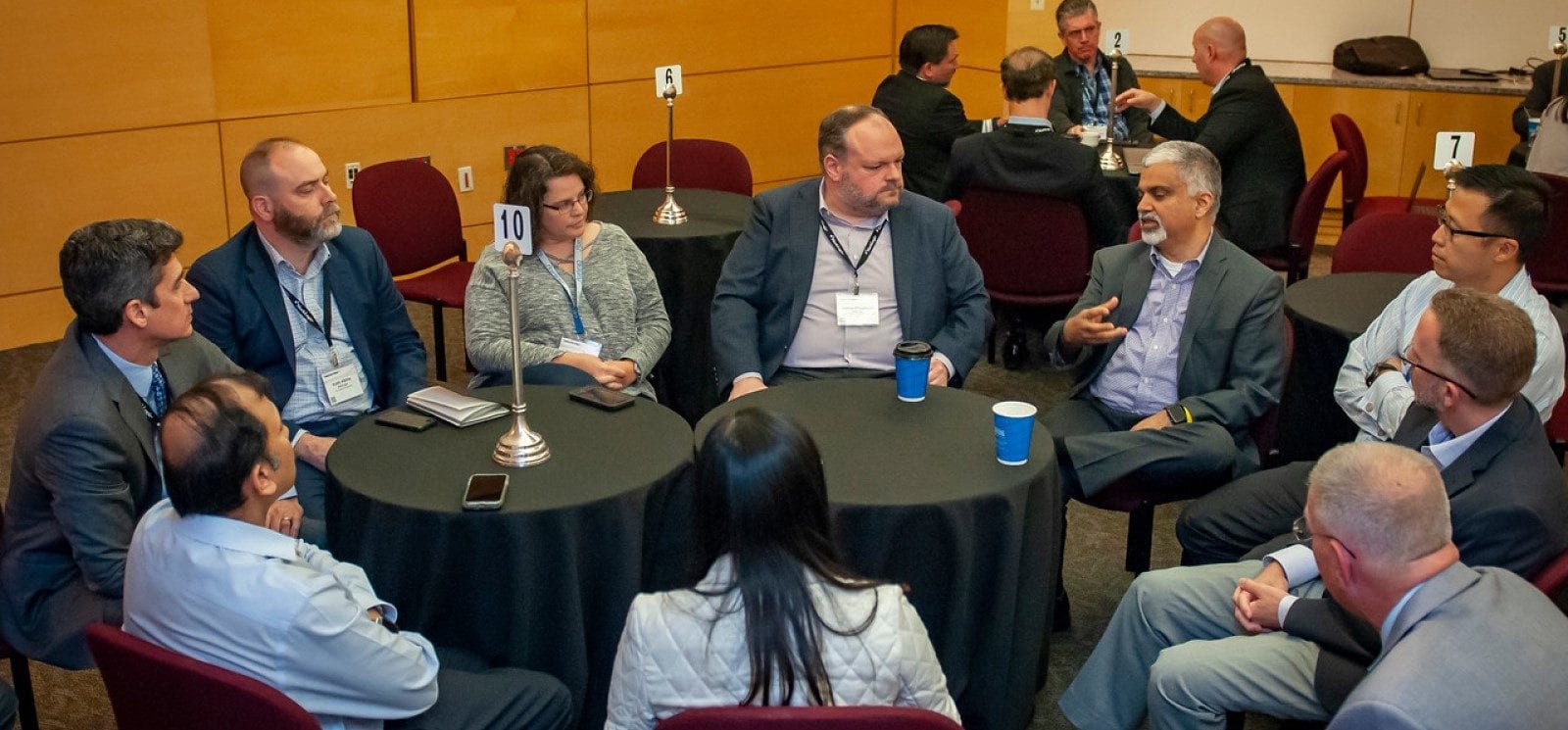Last week we hosted a series of industry breakout sessions featuring the customers and partners who participated in MarkLogic World. These breakouts included a mix of long-time and newer users, from the Publishing, Financial Services & Insurance, Healthcare & Life Sciences, and Manufacturing industries.
The speakers not only answered questions about their recorded presentations, but also provided a number of practical tips that can help you ensure success for your next project. Keep reading to benefit from the wisdom of those who have “been there, done that” with data-related initiatives.
Getting started
Sometimes the hardest thing is to know where and how to start with your data project – or even what project to start with.
- Inigo Surguy from 67 Bricks noted that any digital transformation initiative “will highlight whatever problem exists” and said that organizations need to make sure to focus on the internal changes that are needed, not just the technology. He stated that organizations need to think differently about how they’re approaching problems, and make sure you’re always asking “is it helping the customers, the end-users.”
- Start by finding the business problem you can solve with better data, said Rajiv Iyengar from Epimoni Solutions and Sushant Panda from Syum Technology. Then, take an API-first approach to addressing it – instead of trying to get every bit of your data modeled first.
- To ensure your data will meet “FAIR” (Findable, Accessible, Interoperable, Reusable) principles, Matt Jacobsen from U.S. AFRL said it’s important to engage with data modelers and knowledge modelers early on.
- Allen Muller from Eaton told the audience to find the places where the organization is currently struggling with data – this is where MarkLogic will usually be a good fit.
Choosing the right technology
With so many options out there, how do you know you’ve picked the best technology to meet your needs?
- Make sure to really understand your use case before picking a technology approach, said Kasey Robinson from Great American Insurance Group. She noted that you should thoroughly test different approaches to make sure they’ll work for you.
- Sreeram Potukuchi from Republic Services also recommended that you look carefully at your business case to decide what technology is the best fit.
- Joey Khalid from MuleSoft recommended that organizations leverage pre-built assets versus trying to reinvent the wheel. This will save you time and money.
Avoiding pitfalls
So many things can go wrong in any project. How can you make sure that you’re giving yourself the greatest chance of success?
- Renee Swank and Carl Robinson from Copyright Clearance Center warned the audience not to go down “rabbit holes” by looking at technology alone – tech can be a quick win, or can be your greatest pitfall. Digital transformation, they noted, usually fails because people forget about the people bit.
- Data transformation will be the “gotcha” for any project, said Michael Berkeley from Tax Analysts. He recommended that organizations have a separate data transformation plan in addition to their plans for the overall processes and platform development.
- Andy Godsberg from Broadridge said that having a team of ontologists is the right approach to prevent your data from turning into an ungoverned mess.
- Disruption is coming, whether it’s from a new generation of users or new legislation that gets passed, said Stewart Shelline from WealthCounsel. He noted the importance of agility to respond to those changes, as well as having a deep understanding of the data you own.
Getting buy-in for your project
You may have a great idea, but you still need to get it funded. How can you improve your odds of success?
- Gerry Grenier from IEEE cautioned technologists to be careful about what terminology you use when pitching your solution internally. Using words like “semantics,” for example, can be confusing and make it hard to get buy-in. Instead, you should describe what you’re really going to be doing – and why.
MarkLogic-specific advice
- Blake Milam and Eric Ladner from Chevron recommended using Apache NiFi for ingestion of data into MarkLogic. They said adopting NiFi has enabled easier and faster deployments and more rapid prototyping for their projects.
- Fan Li from DuPont – and many others – recommended using free MarkLogic resources like MarkLogic University training to get up to speed more quickly. Some speakers also noted success with leveraging MarkLogic consulting services, both for education and project acceleration. Sreeram Potukuchi from Republic Services noted that while it can be a challenge to find experienced MarkLogic developers, any solid developer can be trained to use MarkLogic successfully.
I’m very grateful to everyone who participated in the breakouts – we had great discussions on a wide variety of technology and industry-specific topics. If you want us to notify you of future industry breakouts, please let us know by using the Contact Us page.
Learn More
- Watch the customer, partner, and MarkLogic videos in our resources section
- Read James Kenwood’s blog recapping the Publishing industry breakout
- Get more information about MarkLogic industry solutions

Alicia Saia
As Senior Director, Solutions Marketing at MarkLogic, Alicia is responsible for market messaging and content development for solutions across MarkLogic's verticals (Public Sector, Healthcare, Media, Financial Services, Retail, Energy, Insurance, etc.). Prior to joining MarkLogic, she held a variety of marketing and product management roles at software companies in the public sector, security, and healthcare markets.

